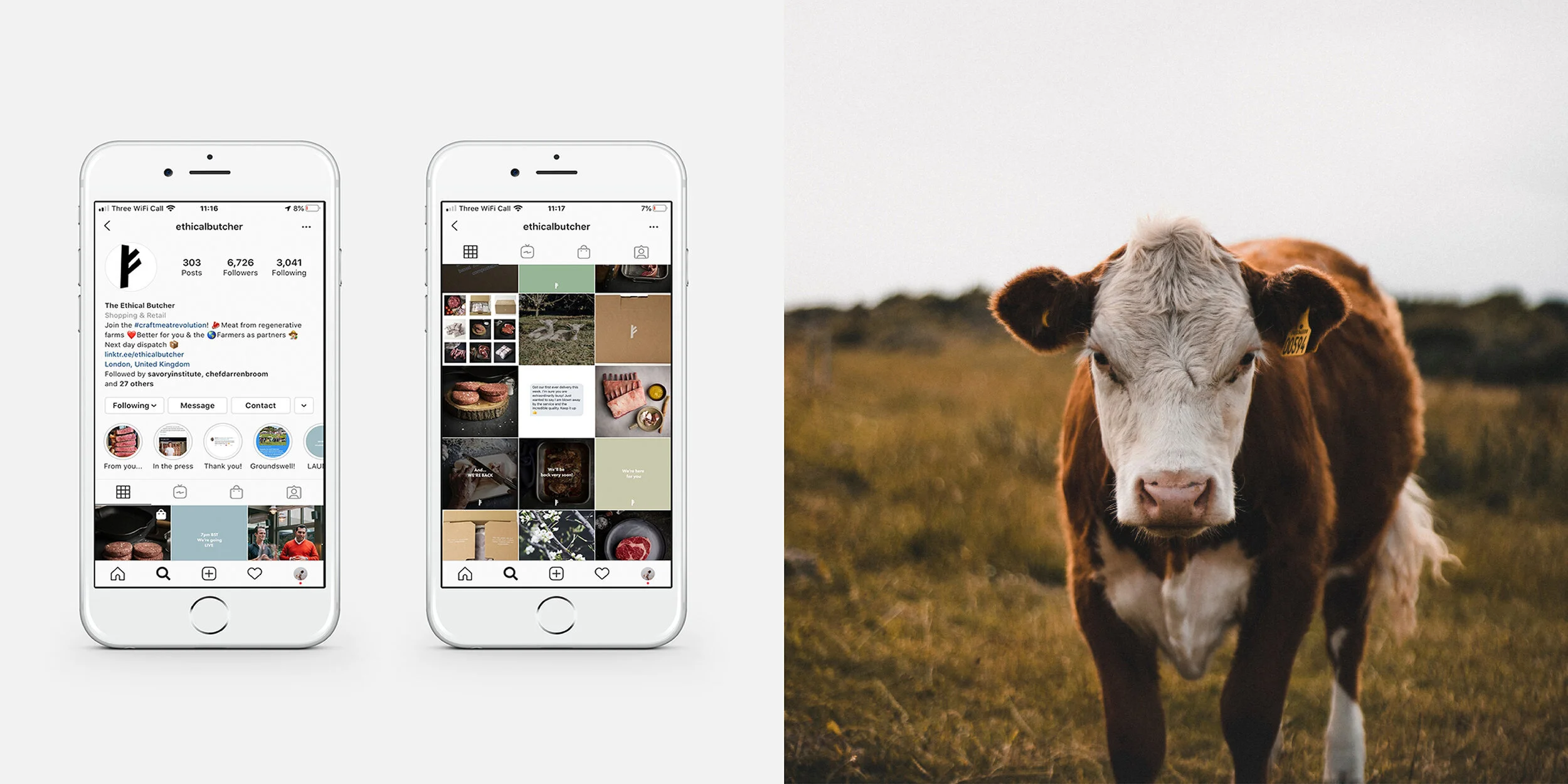5 Conscious Consumer Trends
Provisions is our food industry newsletter covering the food and drink trends we’re most excited about. This month’s edition explored emerging trends in conscious consumerism, including the climatarian diet, waste-less engineering, and plant-based meat replacement technology.
Read an extract below, and sign up to receive your monthly dose of the hottest food and drink trends in the future.
5 CONSCIOUS CONSUMER TRENDS
One of the pandemic’s more positive repercussions is that it’s put an even fiercer spotlight on sustainability. Research shows that we're making more environmental and ethical purchases post-covid, which means a brand's purpose, sustainability values and practices are more important than ever.
We're seeing a more conscious consumer emerge: forced to slow down, we're examining food choices more carefully and we expect brands to do the same. We're adopting more holistic sustainability values and looking to sophisticated tech companies to surprise and delight us with groundbreaking products without compromise. Real innovators are setting themselves apart through clever collaborations, open-book environmental values, or by developing thoughtful waste-free food and drink products from the ground-up.
Everyone’s talking about the new consumer or the ‘new normal’, but new sustainability is where the action really is...
1. Climatarian Diet
Our food choices make a drastic difference to climate change and biodiversity, and research shows that one in five Millennials have changed their diet to reduce their environmental footprint as a result. The climatarian diet takes a big-picture approach to sustainability and is one step on from being vegan or vegetarian: eating local over organic, avoiding greenhouse-cultivated or airmile heavy food, choosing regenerative farming produce, and replacing red meat with plants. Little Freddie kid’s food brand uses Shropshire-grown quinoa to reduce emissions, for example, and the government is moving towards mandatory carbon labelling on all food and drink to help the UK reach net-zero emissions by 2050. ‘Healthy’ food choices are therefore good for the planet, as well as our waistlines.
2. Waste less engineering
Sustainable packaging has made great leaps (biopolymers, reuse over recycling, big brands commitments to plastic reduction etc) but we’re excited about food brands that are reverse engineering their products to reduce waste. Microdrops have disposed of the teabag, for example, and compress dehydrated exotic flowers and herbs into a small, membrane-covered cube that dissolves in hot, cold or sparkling water. It claims to have 97% less packaging and reduce its CO2 emissions by 98% compared to conventional drinks. Dubious wax coating and preservatives on fruit and veg are also set to be replaced by Apeel; a tasteless, plant-based protective layer that keeps moisture in and oxygen out. Produce with Apeel lasts twice as long and reduces food waste throughout the supply chain. So it really is what’s on the outside that counts.
3. Truly transparent
The dramatic rise in online shopping is forcing brands to be more transparent about their ethics and sustainability values. With competition just a click away, retailers are attracting conscious consumers with environmentally-friendly products and services that meet ever-more stringent criteria. Selfridge’s launched Project Earth last autumn as an initiative to connect with ethical customers. It lets you shop by eco categories like ‘vegan’ and ‘forest friendly’. Meanwhile The Ethical Butcher provides ultimate transparency to customers who want to understand the terroir of their meat by providing QR codes which track each product back to individual farms.
4. Conscious collaborations
Sustainability credentials take time to build, so big corporates are acquiring or enlisting the help of start-ups to leapfrog competitors and meet ambitious targets at pace. To support its bold plastic reduction programme, M&S has partnered with UK accelerator Founders Factory to find tech’s most innovative packaging pioneers. Across the Atlantic, Tin Shed Ventures, outdoor clothing brand Patagonia’s VC fund, backs food and drink brands that do good. One of the partners they’ve invested in is Wild Idea Buffalo which rears buffalo meat while restoring the Great Plains grasslands it depends on. Collaboration is integral to businesses fulfilling their promise to become socially responsible corporate citizens.
5. Green Tech
The pandemic has accelerated an already skyrocketing appetite for plant-based eating with the UK’s meat alternatives sector up 18% according to Kantar. Food and drink tech companies are racing to keep up with the demand for truly sustainable, no-compromise meat and dairy alternatives. Original players like Impossible Foods are doubling their research and development resources and are achieving record economies of scale, allowing them to reduce their wholesale prices by 15%. Meanwhile, new entrants like Dutch-based Mosa Meats are getting geared up to launch their first-lab grown meat product later this year.
WHAT’S NEXT?
An interconnected, holistic approach to sustainability, biodiversity, the circular economy and regenerative farming.
Established categories and markets get turned on their heads as challenger brands continue to leapfrog their corporate counterparts.
An increasingly activist approach from brands that are bold, take risks and don't shy away from telling it like it is.





